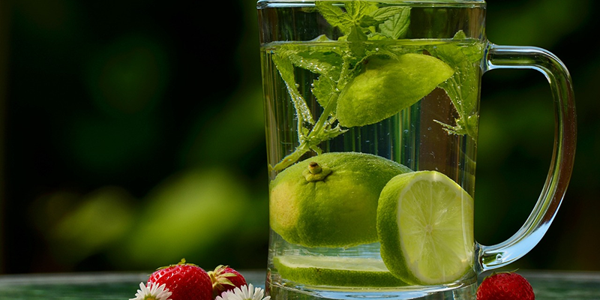The Influence of Wellness Trends on Food and Beverage Products
The significance of wellness trends in shaping food and beverage choices cannot be overstated. The wellness movement influences every aspect of our diets, from innovative food products to boost our health to cutting-edge beverage innovations. This article explores how wellness trends transform the food and beverage industry to satisfy our desire for healthier, more balanced lifestyles.

Overview of Popular Wellness-Focused Food Products
In recent years, the food industry has seen a significant surge in wellness-focused products designed to cater to health-conscious consumers. These products emphasize nutritional benefits, natural ingredients, and minimal processing to align with the growing demand for healthier eating options. From snacks and meal replacements to grocery staples, wellness-focused food products are becoming more mainstream, reflecting the shifting consumer preferences towards holistic well-being.
Examples of Superfoods and Functional Foods Gaining Popularity
1. Superfood
● Chia Seeds: Chia seeds are often incorporated into smoothies, yoghurt, and baked goods.
● Quinoa: A protein-rich grain that is gluten-free and packed with essential amino acids, vitamins, and minerals.
● Goji Berries: These antioxidant-rich berries are hailed for their potential to boost immunity and overall health.
2. Functional Foods
● Probiotic Yogurt: Contains live cultures that support gut health and improve digestion.
● Turmeric Lattes: Infused with the anti-inflammatory properties of turmeric, these beverages are famous for their potential health benefits.
● Fortified Cereals: Enhanced with vitamins, minerals, and other nutrients to support various aspects of health, such as heart health or bone strength.
The Role of Organic, Non-GMO, and Plant-Based Products in Promoting Wellness
Organic, non-GMO, and plant-based products are essential in the wellness movement because they offer cleaner and more sustainable food choices.
● Organic Products: Organic foods are perceived as healthier and more environmentally friendly. They include various products, from fruits and vegetables to dairy and meat alternatives.
● Non-GMO Products: Non-GMO labels assure consumers that the products do not contain genetically modified ingredients, addressing health concerns and ethical considerations.
● Plant-Based Products: With the rise of veganism and flexitarian diets, plant-based products such as meat alternatives (e.g., Beyond Meat, Impossible Foods), dairy-free milk (e.g., almond, oat, and soy milk), and plant-based snacks are gaining traction for their health benefits and lower environmental footprint.
Successful Wellness Food Products
1. Beyond Meat
Beyond Meat has revolutionized the plant-based meat industry with its realistic alternatives made from pea protein, beet juice, and other natural ingredients. Their products cater to vegans, vegetarians, and meat-eaters who want to lower their meat consumption for health or environmental reasons.
2. Siggi's Icelandic Yogurt
Siggi's has gained popularity for its simple ingredients and high protein content, with a focus on low sugar and natural flavourings. Their products appeal to health-conscious consumers seeking nutritious and minimally processed dairy options.
3. RXBAR
RXBARs are marketed as "real food protein bars" with a transparent ingredient list that includes egg whites, nuts, and dates. Their clean label and commitment to no added sugars, gluten, or soy have made them a favourite among fitness enthusiasts and busy professionals.

Introduction to Health Trends in the Beverage Industry
The shift towards health-conscious choices has led to a surge in innovative beverages designed to support wellness goals.
Examination of Functional Beverages
Functional beverages are crafted to provide specific health benefits, often incorporating ingredients known for their nutritional properties. These drinks go beyond quenching thirst, aiming to improve various aspects of health and wellness.
1. Kombucha
Kombucha is a fermented beverage with probiotics that aid digestion and gut health. Rich in antioxidants and organic acids, kombucha is celebrated for its detoxifying properties and potential to boost the immune system.
2. Probiotic Drinks
Probiotic beverages, such as kefir and certain yoghurt drinks, contain live bacteria that support a healthy gut microbiome. Regular consumption of probiotics is linked to better digestion, improved immunity, and enhanced nutrient absorption.
3. Infused Waters:
Infused waters are enhanced with fruits, herbs, and vegetables, offering a refreshing alternative to plain water. These drinks provide hydration along with added vitamins, minerals, and antioxidants. Common ingredients include lemon, cucumber, mint, and berries, each with unique health benefits.
The Rise of Plant-Based and Low-Calorie Beverages
The demand for plant-based and low-calorie options has led to a proliferation of beverages catering to health-conscious consumers who want to reduce their intake of animal products and excess calories.
1. Plant-Based Beverages
Plant-based milk, such as almond, soy, oat, and coconut milk, have become mainstream alternatives to dairy milk. These beverages are often fortified with vitamins and minerals to match the nutritional profile of traditional dairy, making them a popular choice for vegans and lactose-intolerant individuals.
2. Low-Calorie Beverages
Low-calorie drinks, including flavoured water, diet sodas, and light versions of popular beverages, appeal to consumers aiming to reduce their caloric intake without sacrificing flavour.
Case Studies of Innovative Wellness Beverages
1. Health-Ade Kombucha
Health-Ade Kombucha has carved a niche in the wellness market, focusing on high-quality, organic ingredients and small-batch brewing processes. Their range of flavours, from Pink Lady Apple to Ginger-Lemon, attracts health enthusiasts seeking flavorful and probiotic-rich options.
2. Kefir by Lifeway
Lifeway Kefir is a leading brand in the probiotic beverage category. It offers a variety of flavours and formats, including drinkable kefir and kefir cups. Its products are praised for their high probiotic content, contributing to better gut health and overall well-being.
3.LaCroix Sparkling Water
LaCroix has become synonymous with the low-calorie, naturally flavoured sparkling water trend. With no sugars, artificial sweeteners, or calories, LaCroix offers a guilt-free alternative to sugary sodas, appealing to those looking to stay hydrated while enjoying refreshing flavours.
How Wellness Trends Are Changing Consumer Behavior and Food Choices
Wellness trends significantly alter how consumers approach food and make dietary choices. Critical changes in consumer behaviour include:
1. Preference for Whole and Natural Foods
Consumers are increasingly choosing whole, minimally processed foods over highly processed options. This includes a higher intake of fruits, vegetables, whole grains, and lean proteins.
2. Focus on Nutrient Density
There is a shift towards selecting foods that provide maximum nutritional value, such as superfoods, which are rich in vitamins, minerals, and antioxidants.
3. Interest in Functional Foods
Foods that offer specific health benefits, such as improved digestion, better heart health, or enhanced cognitive function, are becoming more popular. This includes items like chia seeds, turmeric, and omega-3-rich fish.
4. Transparency and Clean Labels
Consumers are demanding transparency in food labelling, seeking out products with clear, simple ingredient lists and avoiding those with artificial additives, preservatives, and high levels of sugar or sodium.
Conclusion
The wellness movement has become a powerful force in shaping the food and beverage industry, with wellness trends in food products and health trends in beverage innovations leading the way. As consumers prioritize their health and well-being, the influence of wellness on food choices is undeniable. From the rise of superfoods and functional beverages to the growing popularity of plant-based and low-calorie options, the focus on health is transforming how we eat and drink.
Wellness integration into our dietary habits will continue to evolve, bringing even more innovative and health-focused options to the forefront. These trends can lead to a more balanced and health-conscious approach to eating and drinking, ultimately enhancing our overall well-being.





